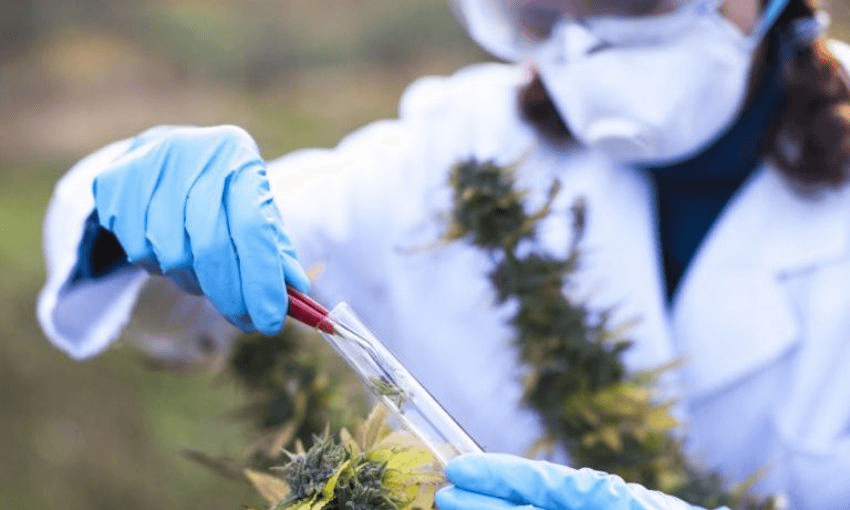Experts are warning that the legalisation of cannabis could increase the levels of contamination in other crops and impact our trade relationships, writes Zac Fleming.
Warnings have been raised with the government that New Zealand’s trade relationships could be compromised by food contaminated with cannabis if the plant is legalised.
On at least four occasions between December last year and April this year, Ministry for Primary Industries staff warned ministers and high-ranking trade officials of a potential “significant trade risk” arising from the legalisation of cannabis.
The four briefings warn of “a number of issues in relation to food safety, biosecurity and trade”, including the possibility of “risks to animal products” through the “spread of cannabis to arable land”.
By holding a referendum at the 2020 election, New Zealand will become the first country in the world to directly let voters choose whether to legalise cannabis.
But food contamination is never mentioned in the government’s 29-page publicly available May cabinet paper.
That’s despite at least four pieces of advice being given to cabinet in advance of that May document. The advice included a recommendation that an enforcement regime be set up to manage the risks to exports.
“We would need to be able to demonstrate our tight controls to overseas countries (particularly Australia),” the March paper update said.
The potential for the plant to spread is not just a concern to New Zealand. A weed risk assessment using New Zealand methodology, adapted for Hawaii, identified cannabis as a “high risk” plant.
Cannabis has been growing in New Zealand since at least 1926, with minimal impact on food supply.
The only likely way it could become a contaminant is through human error, according to Ines Schonberger, the herbarium manager of New Zealand’s largest plant collection at Manaaki Whenua Landcare Research.
“Humans do spread it by accident. You can have it as a contamination in your crop. For example, farmers harvest their crop, and its contaminated by cannabis, and they spread the new crop out again, which can then spread the plant,” Schonberger said.
She gave a recent example of a shipment of buckwheat seed imported from Japan, which she said was contaminated with cannabis seeds – cannabis then grew among the buckwheat planted in New Zealand.
Reversing that scenario illustrates how it could be possible for just a few plants, if they’re growing among a crop that is due for export, to become a trade risk.
Cannabis could also contaminate dairy products if large amounts were inadvertently eaten by cattle.
Aside from human error leading to contamination of arable land, Schonberger said the chance of cannabis spreading prolifically as a weed to uncultivated land is low.
“The seeds don’t have any mechanisms to spread. They can only spread around a metre, maximum, from the mother plant,” she said.
She says cannabis seeds are too heavy to be wind distributed, and Schonberg said analysis on birds shows thousands of seeds need to be ingested “before one viable one comes out”.
For these reasons, much of the literature published on cannabis contamination in countries where it’s been legalised focuses on the potential for edible cannabis products to be contaminated by pesticides or heavy metals.
“It is more [to do with] political reasons why [in the U.S. and Australia] it’s been ranked such a high-risk weed,” she said.
“Because looking into the deeper distribution of cannabis in these countries, it’s not prolific there. It’s not a problem weed.”
Cannabis also won’t grow in dry or shaded areas, so the chances of it spreading outside arable land, for example in forests, is very slim, and Schonberg said there are things the government can do to prevent its spread, like only allowing growers to plant female cannabis.
“If you don’t have any males around then the female plants would not be pollinated, and off we go, the plant can’t spread.”
The Ministry for Primary Industries declined to be interviewed about the potential for food contamination if cannabis is legalised, but an unnamed spokesperson said in a statement that MPI is yet to complete “any risk assessments related to potential contamination of animal products or biosecurity issues” but is “working with the Ministry of Justice”.
A spokesperson for Federated Farmers said in a statement: “Federated Farmers does not see this as a particularly big concern at present. We anticipate that, if legalised, most cannabis will be grown inside or undercover, and as an expensive crop with security issues, growers will be keeping a pretty close eye on it.”
Fonterra, Horticulture NZ, and Australia’s Department of Foreign Affairs and Trade all declined to be interviewed.
